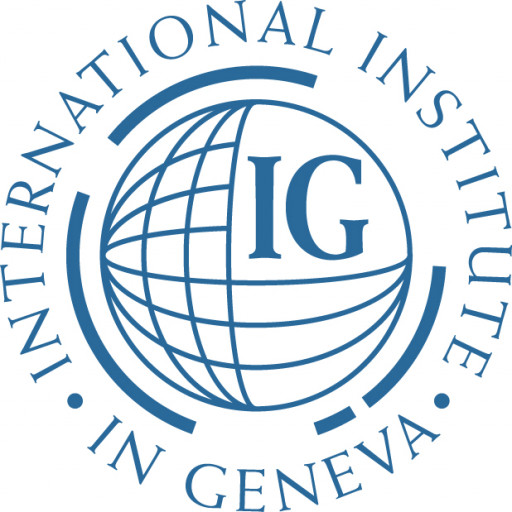Photos of university / #unigeneve
The Bachelor in Computer Science at the University of Geneva offers students a comprehensive foundation in both theoretical and practical aspects of computer science. This rigorous undergraduate program is designed to prepare students for diverse careers in information technology, software development, data analysis, and research. Throughout the three-year curriculum, students engage with core topics such as programming, algorithms, data structures, computer architecture, and operating systems, ensuring a solid understanding of the fundamental principles of computing. In addition to technical skills, the program emphasizes problem-solving, analytical thinking, and collaborative work, reflecting the interdisciplinary nature of modern computer science.
Students have the opportunity to delve into specialized areas including artificial intelligence, machine learning, cybersecurity, and data science, among others. The program encourages active participation in research projects and practical laboratory exercises, fostering an applied understanding of theoretical concepts. The university also promotes international mobility, allowing students to participate in exchange programs with partner universities worldwide, thereby broadening their cultural and academic perspectives.
The Bachelor in Computer Science at the University of Geneva is taught by an experienced faculty committed to academic excellence and innovation. The curriculum is regularly updated to keep pace with rapid technological advances and industry needs. Graduates of the program are well-equipped to pursue postgraduate studies or enter the professional workforce, equipped with both a strong theoretical background and hands-on practical experience. The university’s vibrant academic community and modern facilities provide an inspiring environment for learning, collaboration, and personal development. With its balanced emphasis on theory and practice, the program aims to produce competent, versatile, and innovative computer science professionals ready to meet the challenges of the digital age.
The Bachelor of Science in Computer Science at the University of Geneva offers a comprehensive and rigorous curriculum designed to provide students with a solid foundation in both theoretical and practical aspects of computing. Throughout the program, students explore core topics such as programming, algorithms, data structures, computer architecture, operating systems, and software engineering. The curriculum emphasizes problem-solving skills, algorithmic thinking, and the development of innovative software solutions applicable across various industries.
Students are also introduced to the mathematical foundations of computer science, including discrete mathematics, logic, and formal methods, which are essential for understanding complex systems and developing reliable software. The program encourages the development of analytical and critical thinking through coursework and project work, fostering a deep understanding of computer systems, databases, networks, and security.
The program integrates numerous practical activities, such as laboratory sessions, programming assignments, and team-based projects, allowing students to apply theoretical knowledge in real-world scenarios. Furthermore, students have opportunities to engage with cutting-edge topics like artificial intelligence, machine learning, data science, and cyber security, preparing them for the rapidly evolving IT landscape.
The curriculum is complemented by courses in ethics, digital society, and professional skills, ensuring graduates are not only technically proficient but also socially responsible professionals. The university promotes a collaborative learning environment through group projects, seminars, and interactions with industry partners. Students are encouraged to participate in internships and research activities, fostering practical experience and professional networking.
The Bachelor of Science in Computer Science at the University of Geneva aims to equip students with the technical expertise, analytical skills, and ethical understanding necessary to excel in various careers within the technology sector or pursue further studies at the graduate level. Upon completing this program, graduates will be well-prepared for roles in software development, systems analysis, data analysis, cybersecurity, and other fields where computing plays a critical role.
The Bachelor’s degree program in Computer Science at the University of Geneva requires students to complete a comprehensive curriculum designed to provide a strong foundation in both theoretical and practical aspects of computing. The program spans three years, totaling 180 ECTS credits, and includes core courses, elective modules, and project work. Students must undertake foundational coursework in programming, algorithms, data structures, computer architecture, and mathematics, including discrete mathematics and linear algebra. Advanced topics such as software engineering, databases, operating systems, and artificial intelligence are also integral to the curriculum.
In addition to technical courses, students are encouraged to develop skills in project management, communication, and collaboration through team projects and presentations. Language proficiency is emphasized, requiring students to be proficient in English, with some modules potentially delivered in French, reflecting the bilingual environment of the university. Practical experience is gained through laboratory work, internships, and a final year capstone project, which enables students to apply their knowledge to real-world problems. The program also promotes interdisciplinary learning, offering optional courses in areas such as computational biology, data science, and cybersecurity.
Students have access to state-of-the-art laboratories and resources, including dedicated computing facilities and software tools. Throughout their studies, students are advised to participate in seminars, workshops, and conferences to stay abreast of the latest developments in Computer Science. The program aims to prepare graduates for careers in research, industry, or to pursue advanced studies by fostering critical thinking, problem-solving abilities, and innovative skills. Successful completion of the program leads to the degree of Bachelor of Science in Computer Science, which qualifies graduates for entry-level positions or further education pathways.
The University of Geneva offers a range of funding options for students enrolled in the Computer Science bachelor’s and master’s programs. Tuition fees for both domestic and international students are relatively affordable compared to many other European institutions. For bachelor's students, annual tuition fees are approximately CHF 500, while master’s students pay around CHF 1,000 per year. These fees cover the cost of instruction but do not include additional expenses such as housing, books, and living costs.
The university provides various scholarships and financial aid programs designed to support students financially throughout their studies. These include merit-based scholarships awarded based on academic achievement, need-based grants aimed at students demonstrating financial hardship, and mobility grants for students participating in exchange programs. Many of these scholarships are funded by the Swiss government, private foundations, and the university itself. International students are encouraged to apply for the same financial support options as Swiss students, although the eligibility criteria may vary.
Students are also advised to explore external funding sources such as government student loans, national scholarship schemes of their home countries, and international education grants. In addition, the University of Geneva has partnerships with various organizations that offer sponsorship opportunities for outstanding students pursuing computer science studies.
Financial planning is an important part of studying at the university. Students are recommended to budget for accommodation, transportation, textbooks, health insurance, and daily living expenses. The university’s career services and student counseling centers often provide guidance on budgeting and financial management, ensuring students can effectively plan their finances throughout their studies.
It is also advisable for students to consider part-time work opportunities available on or near campus to supplement their income. The university’s location in Geneva, a major international city, offers numerous opportunities for internships and part-time employment, particularly within the tech industry and research institutions.
Overall, the University of Geneva strives to make higher education accessible by offering a combination of affordable tuition, scholarships, and employment opportunities. Students are encouraged to actively seek information about available financial aid from the university’s official channels and to submit applications early, as many funding options have fixed deadlines. By leveraging these resources, students can reduce their financial burden and focus on achieving academic success in their computer science studies.
The Bachelor in Computer Science at the University of Geneva is a comprehensive undergraduate program designed to provide students with a solid foundation in the fundamental principles of computer science, along with the opportunity to develop specialized skills in various areas of the field. The program typically spans three years and aims to prepare students for both professional careers and further academic studies in computer science and related disciplines. The curriculum includes core courses in programming, algorithms, data structures, computer architecture, and systems, as well as courses in software engineering, databases, artificial intelligence, and machine learning. Students also engage in practical projects and lab work to apply theoretical knowledge in real-world contexts. The program emphasizes critical thinking, problem-solving, and analytical skills essential for technology innovation and development.
In addition to technical courses, students may have opportunities to explore cross-disciplinary topics such as human-computer interaction, computational biology, and cybersecurity. The university promotes an active learning environment with collaborations, internships, and research projects. Students are encouraged to participate in innovation hubs, hackathons, and industry partnerships to gain practical experience and build professional networks. The program also includes seminars, guest lectures from industry experts, and workshops to ensure students stay updated with the latest technological advancements. Graduates of the Bachelor in Computer Science from the University of Geneva are equipped to enter diverse fields such as software development, data analysis, cybersecurity, and academia. They are well-prepared to pursue specialized master's programs or research careers, contributing significantly to the rapidly evolving digital landscape. Overall, the program aims to cultivate skilled, innovative, and adaptable computer scientists capable of addressing complex technological challenges in a global context.







